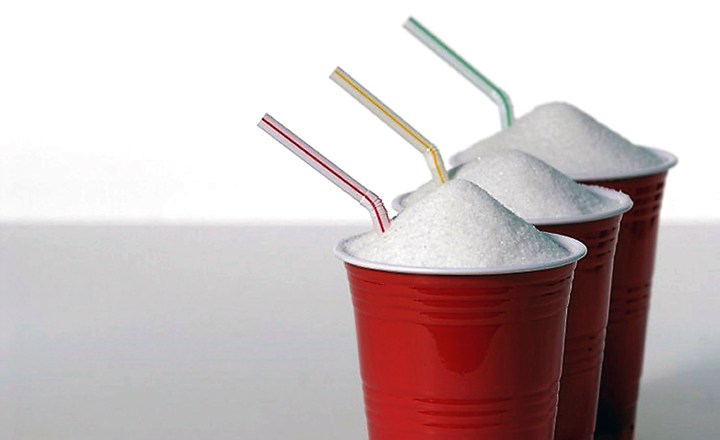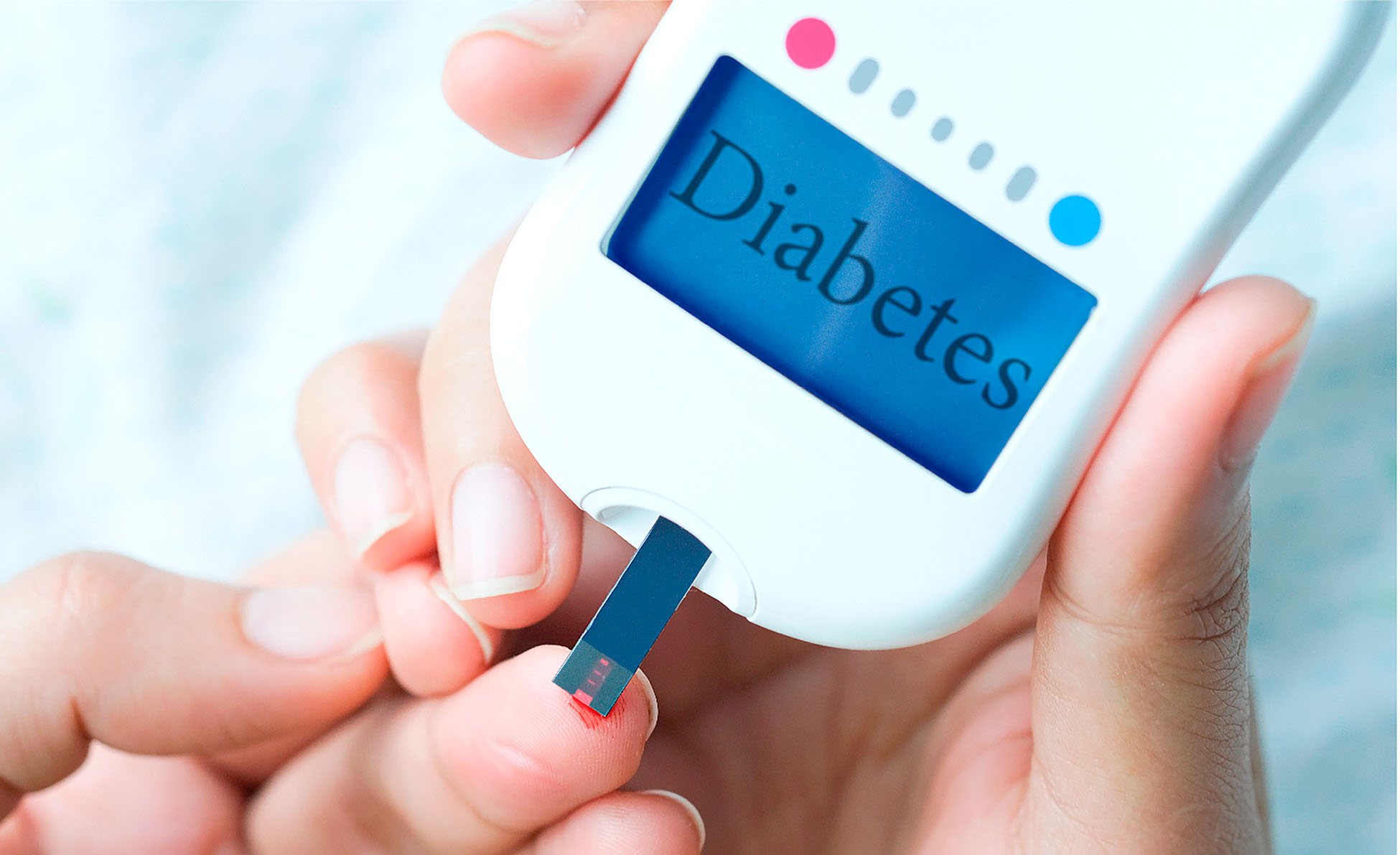THE CONVERSATION
Diabetes is South Africa’s second-biggest killer disease: hiking the sugar tax would help

The direct cost to the country’s health system of this silent killer is R2.7bn. As eyes turn to the Minister of Finance delivering the Medium-Term Budget Policy Statement to National Assembly members, we’re pushing for a long-overdue increase in South Africa’s sugar tax on beverages. Let's improve our fiscal health and public health in one swift, effective action.
Death rates in South Africa have declined slightly during the past few years. But the country faces a steady rise in both death and disability caused by increases in non-communicable diseases such as diabetes and cancer.
According to the NCD Alliance, a civil society network, non-communicable diseases cause 71% of deaths globally. Of these deaths 85% occur in low and middle-income countries.
[Both obesity and diabetes are known to be triggered by over-consumption of sugar. Liquid sugar is known to be particularly harmful and has no nutritional value.]
In South Africa, according to Statistics South Africa, there was an increase of 58% in deaths from non-communicable diseases from 1997 to 2018. Diabetes is the second leading cause of death in South Africa after tuberculosis.
Diabetes affects 12% of the adult population, wreaking massive damage to individuals’ health and livelihoods, and to the national fiscus. The direct cost of diabetes to South Africa’s health system is R2.7-billion (US$150-million) – and that is only for those patients who are diagnosed. It does not factor in the indirect costs of loss of jobs and income.
If all cases were diagnosed and treated, PRICELESS SA (Priority Cost Effective Lessons in Systems Strengthening South Africa), a research unit based at the School of Public Health at the University of the Witwatersrand, estimates this would cost R21.8-billion (US$1.2-billion) a year, rising to R35-billion (US$1.9-billion) in real terms by 2030.
Finance minister Enoch Godongwana will table the Medium-Term Budget Policy Statement on Wednesday, 1 November 2023. Based on our research, and the experience elsewhere in the world, we believe Godongwana has an opportunity to improve both South Africa’s fiscal health and its public health in one swift, effective action: by increasing the Health Promotion Levy, better known as the “sugar tax” on beverages.

Finance minister Enoch Godongwana has an opportunity to improve South Africa’s fiscal health and public health by increasing the Health Promotion Levy, or ‘sugar tax’ on beverages. (Photo: Gallo Images / Ziyaad Douglas)
Why the urgency?
Most South Africans with diabetes are either diagnosed very late, by which time they are much sicker, or are not diagnosed at all. The SA Demographic Health Survey data from 2016, the most recent study, found that 67% of all men and women were “pre-diabetic” and suggested that a “large portion” of South Africans remained undiagnosed, and therefore untreated.
Untreated or badly controlled diabetes can result in amputations, kidney failure and blindness. Many of these same individuals also have high blood pressure and end up with stroke as a result of brain haemorrhage.
Read more in Daily Maverick: An increase in the sugar tax will boost SA’s ailing economy
Obesity is known to be linked to diabetes – and rates of obesity and overweight people, too, are increasing relentlessly. Current rates of obesity in South Africa are 11% among men (with another 20.3% overweight), and 41% among women (with another 26.6% overweight). At this rate it is expected that 50% of South African women will be obese by 2030.
Both obesity and diabetes are known to be triggered by over-consumption of sugar. Liquid sugar is known to be particularly harmful and has no nutritional value. This is why the public health community recommends at least a 20% tax on sugary beverages.
The Health Promotion Levy should also include 100% fruit juices in the list of products subject to the tax.
In 2018, in an attempt to address South Africa’s obesity, diabetes and other non-communicable diseases, National Treasury imposed a tax on sugar-sweetened beverages, known as the Health Promotion Levy. It equates to 2.1 cents per gram of sugar above a 4 gram threshold per 100 millilitres – which amounts to a levy of approximately 11% on the price.
R10bn in sugar tax revenues
As of June 2022, the sugar tax alone had raised more than R10-billion ($750-million) in revenues that went directly to the treasury. Only R24-million ($1.3-million) in 2019/2020, and R14-million ($0.7-million) in 2020/2021, was allocated to expenditure on “health promotion”.
But the South African sugar industry fought the sugar tax from the outset. The tax started out at a lower rate than originally planned: it was designed to be 20%, in line with World Health Organization (WHO) recommendations, but was slashed to 11% because of sugar industry pressure during a prolonged public consultation period. The already ailing industry alleged it would cause further job losses.
In reality, other global sugar market realities are the cause of declines in local sugar production and jobs. For example, distorted global prices are below South Africa’s cost of production. This predated the introduction of the sugar tax.
The South African government has not increased the sugar levy from its initial 11% in the five years since it started. It has put previously planned increases on hold. In the February 2023 budget speech, the Minister again imposed a two-year moratorium on the Health Promotion Levy, not even allowing for an inflation-related increase. In real terms, the sugar tax has effectively been reduced.
Read more in Daily Maverick: A look at how surplus food can be used to address the crisis of hunger and malnutrition in South Africa
The South African Sugarcane Growers’ Association has expressed concern at the prospect of an increase in the levy, fearing negative impacts on the sugar industry. Yet research from PRICELESS, analysing data from the South African Quarterly Labour Force Survey from January 2008 to June 2019, shows that the sugar levy has had little effect on sugar-industry employment. Even at its current weaker-than-ideal rate, the tax has reduced consumers’ consumption of sugary beverages by about 2g per capita per day, separate research led by PRICELESS SA scientists shows.

Most South Africans with diabetes are either diagnosed very late, or not at all.
(Photo: Dr Pavitra / Wikipedia)
Government could turn the tide
To reverse South Africa’s fatal diabetes trend and pour additional, much-needed billions into public funds, the government should increase the rate of the Health Promotion Levy to the 20% endorsed by the WHO.
Early detection and treatment is key to reducing the disabling effects of diabetes and the cost to the state. Therefore better diagnosis in the public health system should be prioritised – and funded from Health Promotion Levy revenues.
The fact that the Health Promotion Levy has already yielded more than R10-billion to the treasury is testament to its revenue potential. The win-win consequences of raising the levy seem indisputable. DM
This story was first published in The Conversation.
Karen Hofman is a professor and Programme Director, SA MRC Centre for Health Economics and Decision Science – PRICELESS SA (Priority Cost Effective Lessons in Systems Strengthening South Africa), University of the Witwatersrand. Susan Goldstein is Associate Professor in the SAMRC Centre for Health Economics and Decision Science – PRICELESS SA, University of the Witwatersrand.



















 Become an Insider
Become an Insider
Surely there should be an equivalent non-nutritive sweetener tax, as to avoid paying the sugar tax the corporates just load the drinks with NNS, and from what I’ve read it’s just as bad as sugar.
A sugar tax is a tax on the poor. I don’t know any rich people who use sugar.
Exactly
The point of a sugar tax is to protect health by making sweet drinks expensivev- is not to make a profit. And precisely because price most affects the poor, they become the most positively benefitted health-wise. And for those who persist in ignoring the cost and likely getting diabetes, the tax revenue will go some way to funding their health care.
sugar doesn’t cause diabetes.
That does not align with my understanding, which is that sugar specifically , and refined carbohydrates generally have a very large role to play in both increases in obesity and diabetes.
This is the most stupid argument I have ever heard from people who do not know the diet of the poor and neither do they care. Their high and middle class status that is making them to have alternatives makes them oblivious to the fact that the diet of the poor is largely maize and sugar. As a person who lives with diabetes and understands the diet very clearly these two clowns are trying to impose costs on the poor who have no choice but to eat unhealthy diet. The central diet regarding diabetes is not sugar but the level of the glycemic index in the food that a person eats. It is the level of glycemic index in the food such as maize, rice, vegetables like carrots and beetroot that the poor consume and in beer as well as malt. When one received the education from my physician about the glycemic index one really even learnt that that the zero sugar cold drinks actually are having a higher glycemic index and brown bread and sugar are worse. The sugar tax hits the majority of the poor very hard than the two who live on the lap of luxury with a wide range of choices on diet that may also be dangerous if you look at the glycemic index. The hogwash they are spewing has no scientific basis. You will find that the elderly and the poor who suffer from diabetes are on a diet that has a high glycemic index like potatoes, carrots an beetroot. They need to get education on the proper diet for diabetes before they go around spewing bile as if sugar is singularly responsible for diabetes.